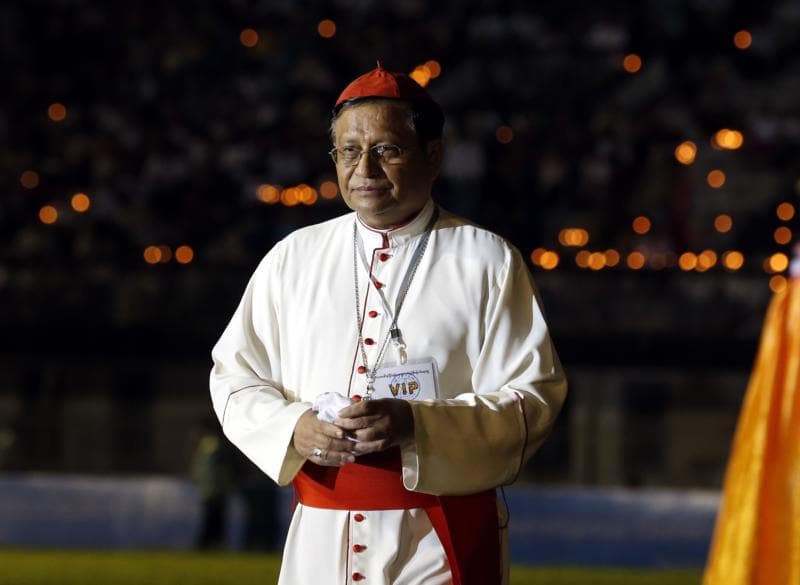MUMBAI, India – Myanmar’s first cardinal said the Catholic Church in the country is a “neutral body” between the Buddhist majority and Muslim Rohingya minority and can therefore be an “instrument of peace.”
Cardinal Charles Bo, the Archbishop of Yangon, was speaking on April 27 in Pathein Diocese at a national gathering of over 2,500 young people preparing for this year’s Synod of Bishops’ meeting on youth taking place in Rome.
He was made a cardinal by Pope Francis on February 14, 2015.
Bo acknowledged that the Church also faces obstacles in Myanmar – including war, displacement, and poverty – but said, “as Jesus was a wounded healer, we are not here to talk only about our wounds.”
Since last August, the Southeast Asian country has faced its worse crisis since it held multiparty elections in 2015, which Nobel laureate Aung San Suu Kyi’s National League for Democracy won in a landslide.
A government campaign against the country’s Rohingya minority has driven more than 700,000 refugees from Myanmar into neighboring Bangladesh.
“You know that as Catholics we have an advantage to bring peace between the majority community that is becoming highly confused and the Muslim community,” Bo said.
The cardinal noted various bishops have worked with the ethnic militias and the Myanmar military in the Kachin and Kayah areas of the country in order to promote peace.
“When we confront challenges, we need to be encouraged by the example of Jesus. Jesus came at a time when his country Israel was under bondage. The resources were exploited by Roman colonizers. Christ preached peace with justice. He walked with the people in the margin,” he said.
Bo said there are “five wounds” caused by lack of peace in Myanmar, which have “bleeding for the last sixty years”: Conflict with the country’s ethnic minorities; conflict with religious groups, primarily the Muslim issue; conflict caused by economic injustice; conflict caused by Environmental Injustice; conflict caused by people trafficking and drug trafficking.
“These five wounds have made our golden land into one of the poorest countries in the world. Who is worst affected? It is our youth,” the cardinal said.
He noted that three generations have lived under war and displacement, 70 percent of young people in Myanmar haven’t completed high school, and young people are serving as cheap labor for China, Thailand, Malaysia, and other countries.
“Myanmar youth are wounded. But we can become the wounded healer. But we have to tackle our own internal challenges,” Bo said.
Among these challenges are the ethnic divisions within the Church, which is comprised of five major groups.
“When the big cyclone happened in the delta, for many of us it was a ‘Karen’ area and Karen Church problem. Then we had the Kachin conflict emerge and throw out thousands as IDPs – it became a Kachin problem. We have not even visited the IDP camps. We can give many examples how we are not touched by the wounds of other people,” Bo said.
He also said the Myanmar Church has “struggled” to have a universal outlook, with many unwilling to see every human being as the image of God.
The cardinal said for many Catholics, their religious duty is fulfilled by attending Sunday Mass, and have no more Christian involvement.
“Vatican II and the popes have constantly warned against this fragmentation,” he said.
“Before we go for making peace in the country, we need to develop a culture of peace in ourselves. We are not to cultivate hatred. Following Jesus who could forgive enemies even from the Cross, we need to have a culture of forgiveness,” Bo said.
“Every human being – even those who oppress us – has a dignity. Only through inner freedom can we enter into peace making. Anger is not the starting point,” he continued.
The cardinal concluded his remarks by issuing a plea to the youth that they be “the last generation that would see war and displacement.”
But to achieve that, Bo said the Church and youth together must “vow to invest their energy and time in peacemaking.”














